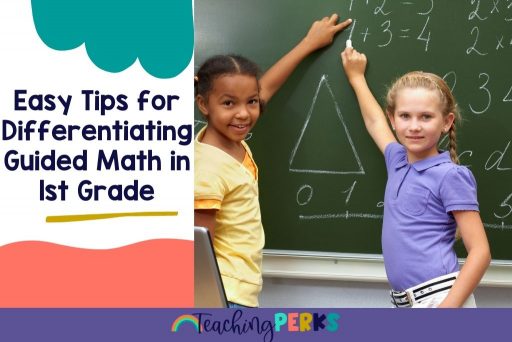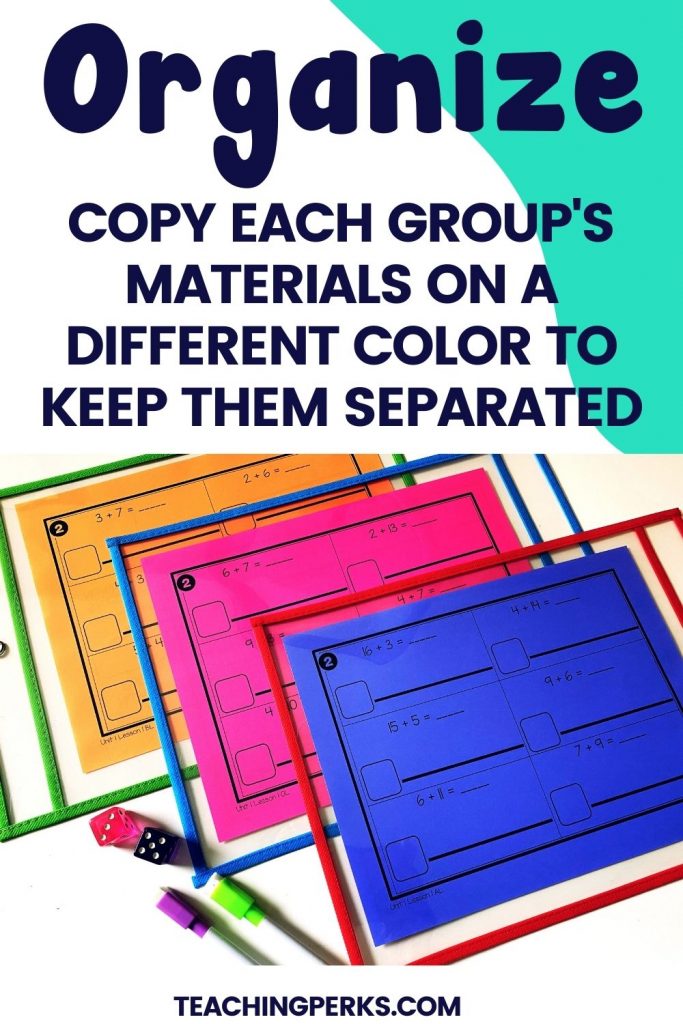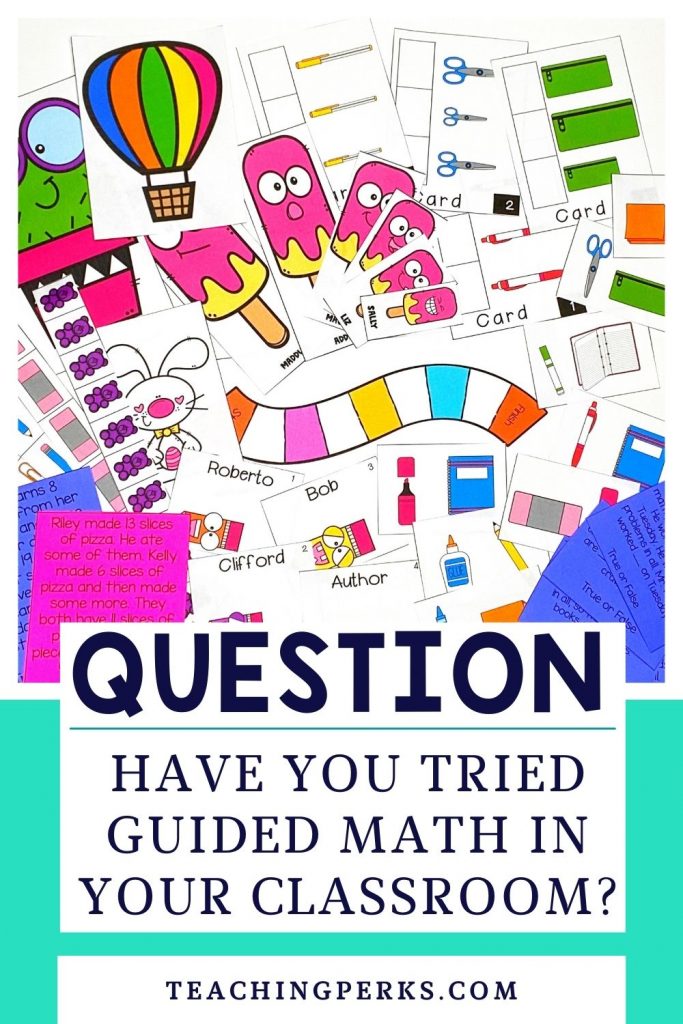Differentiating math is one of the most important things you can do for your students and their individual needs. One of the main reasons for promoting guided math is to be able to help individual students where they are. As teachers, it is difficult in whole class math settings to see where each individual student is struggling. There are so many pros to using guided math in 1st grade! Guided math is a type of classroom instruction small groups can come together, work together with the teacher, get help where they need it. This type of learning environment also helps the teacher see where each student is with the standard. Differentiating guided math is an effective way to make guided math work for your group of students.


Creating Differentiated Math Groups
In first creating your guided math groups, consider differentiating as one of the factors in organizing groups with different activities. You can group different students based on recent test scores or math fluency checks to group similarly skilled students together. This is probably the most common differentiation strategy and probably the way you want your groups to be made most of the time to foster student learning and individual success.

There is a lot to be said for grouping similarly skilled students into guided math groups. However, there are times you may want to group kids differently for effective differentiation. As the groups roam around the room at different guided math stations, you may want different levels of learners with different learning styles. By having a mix of math abilities, you will have students who can help others understand the stations to meet the needs of all learners.
Challenges for Early Finishers
Whether you are working with students in a small group at the teacher’s table or they are working at guided math stations, you will have early finishers. Whether they should be finishing early or not is another matter for discussion in another post. For today, I have some ideas for what to do in the differentiated classroom with those early finishers. Hopefully, you will be able to challenge those early finishers and keep them from distracting their friends who are still working.
- Worksheets to practice new and old concepts
- Unifix Cube Activities to incorporate hands-on practice of what you’re learning in math class
- This Free Mystery Number Word Problem you can download
- Asking students who finish early to help others around the classroom
- Looking through any of my First Grade Guided Math Units that all include challenge options
- Practice math facts with flashcards or number games
Cater any or all of these to the individual needs of all students. Feel free to share with me how you have successfully implemented these math differentiation strategies in your guided math classes.
A Closer Look at Differentiated Math Organization for Teachers
Keeping yourself organized in a classroom always seems to be a challenge. I’m sure most of us have realized by now that in order to keep a classroom successful, it has to be a little bit organized. Just like all the other subjects you teach, guided math should have a designated place in your classroom. It should be easy to access. A great system for organizing guided math groups is having color-coded groups or using numbers representing their group level. By color-coding or using a numbering system, you will know which materials are meant for each group. This will keep you from spending too much time between groups organizing yourself.

Conclusion
No matter how you set up your guided math groups, differentiating is key. Working with small groups of like-skilled and similarly leveled students is essential to helping your students grow in their math abilities. Differentiating guided math can be easy and fun with all these different ways to work with your groups of students on improving each particular skill. Please tell me what works for you or what you are excited to try in your guided math groups in the real world!

You May Also Be Interested in These Guided Math Posts
Guided Math Groups: 3 Simple Tricks for Running Them Successfully
Why Use Guided Math Over Whole Group Math in 1st Grade?
Why Is Guided Math Important In 1st Grade?
15 Simple and Powerful Small Group Strategies For Addition and Subtraction
[…] You will be working on skills that need extra practice with some groups and enriching other groups. If you want some quick and easy tips on differentiating your guided math groups then check out this … Sometimes math small groups will go smoothly and sometimes they will be rough. Find out why I would […]